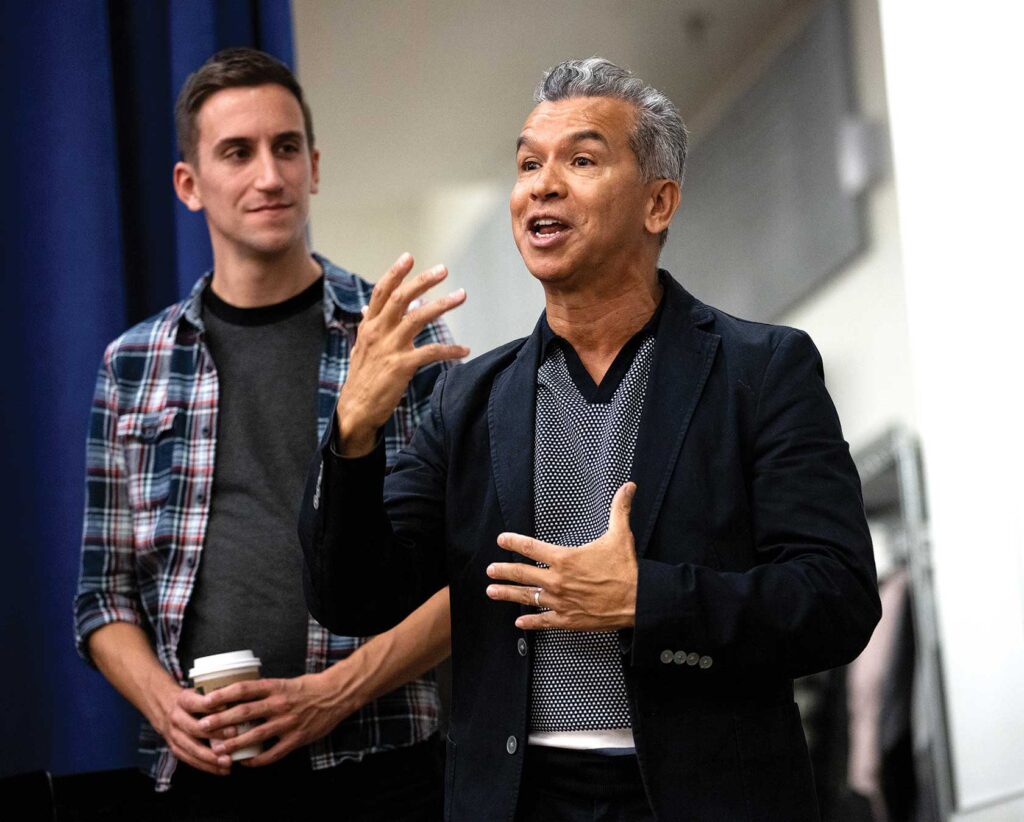‘Real Women Have Curves’
Musical adaptation of film opens at American Repertory Theater

In 2002, the film “Real Women Have Curves,” starring America Ferrera, Lupe Ontiveros and George Lopez, was a groundbreaking story of a young Latina finding herself and learning self-acceptance in the United States. Now that story has been transformed into a musical and is playing at the American Repertory Theater at Harvard University.
Based on the original play of the same name by Josefina López and the screenplay co-authored by López and George LaVoo, the musical adaptation tackles all the original challenges of immigrant families and a few additional storylines.
“I’ve devoted my career and my work to telling Latinx stories,” says Satya Chávez, who plays the new role of Izel in the musical. “And so this being the iconic story that it is and also the team being as iconic as they are, it was kind of a no-brainer to sign up.”
The story starts in the summer of 1987 in Los Angeles. Eighteen-year-old Ana, who grew up under the roof of strict immigrant parents, wishes to attend college in New York City and experience new things. Her family expects her to work in the garment factory they own and to conform to their traditional expectations.
Chavez’s character, Izel, is an undocumented immigrant who worries about being deported. Though that character didn’t exist in the original story, the fear of deportation was an unspoken through line. In the musical adaptation, many immigrant challenges such as that one are addressed more explicitly.
“Part of my affinity for ‘Real Women Have Curves’ is a desire to pay homage to the women — to our mothers, our aunts, our cousins, our friends — who have given us so much,” says director and choreographer Sergio Trujillo. “I want the Latino community, the brown community, to see themselves in these stories.”
The musical adaptation was created by an award-winning team of Latinx artists, with an original score by Grammy Award-winning recording artist Joy Huerta and Fred Ebb Award-winner Benjamin Velez, a book by American Theatre Critics Association Award-winning and Pulitzer Prize-nominated playwright Lisa Loomer, and choreography and direction by Trujillo, a Tony Award-winner. In this way, the musical is as much as testament to the creative power of Latinx artists as it is an homage to the immigrant and first-generation American experiences.
“Real Women Have Curves” runs at the Loeb Drama Center on Brattle Street in Cambridge through Jan. 21. On Jan. 5, the 7:30 p.m. performance will include Spanish captions.
Though the musical tackles heavy topics like xenophobia, racism and body-shaming, Chávez says it has a lighter tone than the play or the movie. After all, the characters are singing and dancing out their emotions. As much as the production is about challenges and adversity, there is more to the Latinx narrative, and “Real Women Have Curves” also illustrates the joy, the community and the cultural ties that strengthen Ana and her loved ones.
“Representation matters,” says Chávez. “Our stories are a way in which we prove our humanity, a way in which other people look into our world. And so it’s beyond just us being able to see ourselves and see each other, but people who don’t often get to see us not just honored, but cherished and celebrated.”







